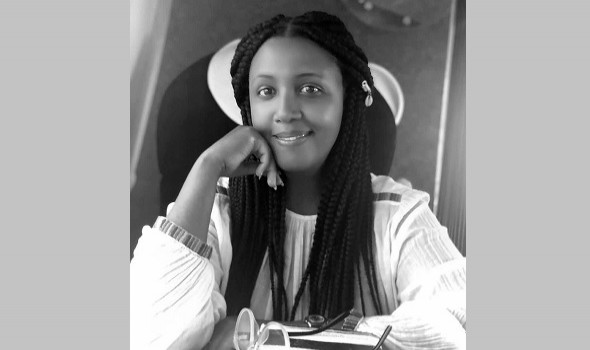Nadia: on a mission to inspire the next generation
Nadia: on a mission to inspire the next generation

Nadia Kanyange has a dream: “I want to do good in the society I live in, I want to use my skills and knowledge to lift other people up,” she says, a bright smile on her face.
The Glaswegian is running for the Scottish Parliament as a Green candidate, after a journey that took her from her native Burundi to Scotland, where she arrived as a refugee with her small child, in 2004. Nadia has been a social activist in her local area for years, helping women and migrants with charities such as Karibu and Migrant Voice, and being inspired by the people she came in contact with. “It’s so important to listen to people. That’s how we support each other,” she says.
Nadia’s experience with the asylum process, which lasted for four long years and included an initial rejection, allowed her to see the society she lived in with the eyes of the most vulnerable: “It was a very difficult time for me,” she recalls, “I didn’t know what the future was holding. It was a very uncertain situation.”
Finally, Nadia was granted leave to remain in 2008, and soon went back into full time education: “I learnt so much about myself and about the world,” she says of her years in college. This is also when she started volunteering with local organisations: “I felt like that was an important thing to do. When I arrived here, I felt that there wasn’t enough assistance and support.”
Nadia’s work with vulnerable people actually dates back to her time in Burundi, where she worked with refugees from neighbouring countries as a 19-year-old. The experience changed her worldview, she says. “It changed the way I feel about other human beings, and how I think we should live together.” Everything that she does now is shaped by what she learnt working in Burundi. “And I’m very proud of that,” she adds.
After graduating from college, Nadia went on to study Society, Politics and Policy at University of the West of Scotland, where she had the chance to enrol in a shadowing scheme in Holyrood. She soon started going to the Scottish Parliament to spend time with MSPs and see how they interacted with the community. “I knew that there was a need for diversity in politics, but never in my life did I think I could be a politician!”, she says, laughing. But the time spent shadowing MSPs was very inspirational, and Nadia started seeing herself as someone who could do the same.
Today, it’s clear that the idea of a community that lifts its members up is at the heart of everything that Nadia does. When the opportunity to run for election came, she took it, thinking about others that may come after her, anyone that she may “open the door for” in the future, as she puts it. She gets her inspiration from the millions of women who aren’t seen by many, but who are not afraid to stand up, contribute, and keep their communities and families together through their work. “I’m very grateful to be a candidate, and I’m hoping that this will have a positive impact on someone, anyone in our society.”
Nadia thinks in particular of migrants, whose voices aren’t always heard. “It’s important to see migrants in politics, because migrants should know that their voices are being heard. Migrant voices need to be valued,” she continues. She is also not afraid of addressing racism: “It’s uncomfortable to talk about it, but it’s important to mention that it exists.” And while episodes of explicit racism may be rare and easily condemned, covert racism is harder to discuss. “People are afraid to speak up because they don’t want to be accused of exaggerating, or of playing the racist card.” But fighting any form of racism means allowing everyone to have a voice and to contribute to society, she adds.
In the future, Nadia hopes to see her child, who will soon be an adult, become a good member of society. And she hopes that her efforts will inspire other people to be as brave as she is: “I’m not a public speaker,” she explains, and adds that she had to leave her comfort zone in order to be a candidate. But she is doing “what’s important to do,” she continues. She reiterates the importance of making one’s voice heard: “Someone is always listening,” she says.


